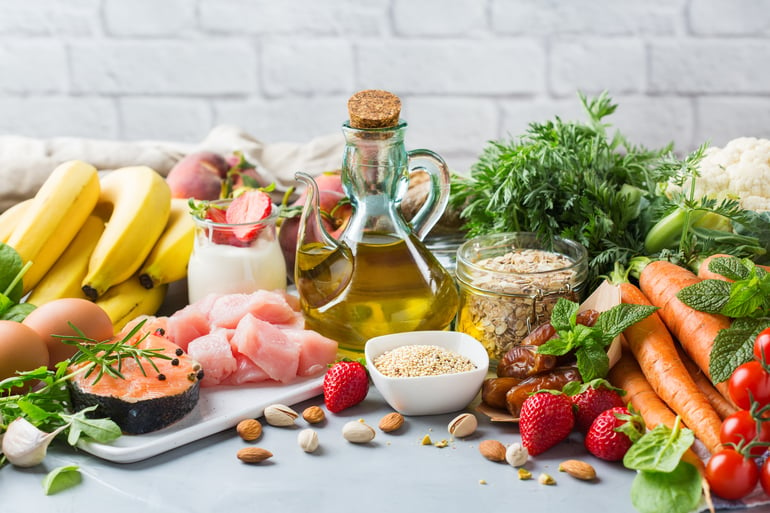You’ve heard the saying, “You are what you eat.” We think it’s a good way to describe senior wellness. When you eat healthier, you live healthier too.
In fact, besides exercise, eating healthfully may be one of the best steps you can take toward total senior wellness for anyone in independent living. Research and studies have shown that certain foods and diets, especially the Mediterranean diet and lifestyle, promote better health in the body and in the brain.
In their ongoing efforts to battle brain disease and cognitive decline, the Alzheimer’s Association has formulated a few dietary health tips for seniors that promote brain fitness and overall senior wellness.
More Wellbeing Tips:
Sleep & social engagement are important for your health.
Brain health is promoted through a diet that has cumulative benefits. Brain-healthy foods are low in fat and cholesterol, promote blood flow, and can reduce the risk of other chronic conditions like heart disease or diabetes.
There are a few foods you should definitely be eating to ensure that you get the nutrients you need to get to a state of good brain health and better senior wellness.
Fish
While the best “brain foods” are still up for debate, doctors, scientists, and nutritionists all agree that fish definitely makes the cut. Deep-water fish, like salmon, are particularly beneficial as they provide an excellent source of omega-3 fatty acids. Eating wild salmon as it is particularly clean, has less mercury than most fish, and is plentiful. But whatever deep-water fish you prefer— halibut, mackerel, and tuna are also excellent choices— you should eat a 4-ounce serving at least two to three times a week.
For a tasty salmon dish for two, try this easy recipe.
Soy and Sesame Wild Salmon
Ingredients
- 1 ½ lb wild salmon fillet
- 1 Tbsp soy sauce
- 1 Tbsp brown sugar
- 1 tsp rice vinegar
- 1 tsp sesame oil
- 1 Tbsp roasted sesame seeds
- 1 tsp freshly grated ginger
- 2 tsp canola oil
- 1 scallion, chopped (for garnish)
Preparation
- In a bowl, mix together soy sauce, brown sugar, rice vinegar, sesame oil, grated ginger, and sesame seeds with 2 tablespoons of water.
- Put salmon in a lidded container and pour 2/3 of the marinade mixture into the container. Reserve the remaining marinade. Close the lid and shake gently, making sure the marinade has covered the entire salmon. Place in refrigerator for 30 minutes.
- Heat a frying pan coated with canola oil over high heat. Add salmon and lower the heat to medium. Cook for 5-6 minutes, until salmon is no longer translucent. Flip with tongs and continue cooking the other side for another 5 minutes.
- Pour the remaining marinade into the pan. Cook over low heat until the sauce has evaporated.
- Remove from pan and serve with chopped scallions on top.
Dark-skinned fruits and vegetables
Fresh produce with darker skin—think berries and leafy greens—have high levels of antioxidants that can reduce health risks like cancer and enhance brain function.
There’s no such thing as too much of a good thing with leafy greens with their low levels of carbohydrates, sodium, and cholesterol. And in addition to antioxidants, greens also boast high levels of fiber, iron, magnesium, potassium, and calcium, as well as A, C, E, K, and a full complement of B vitamins.
Blueberries, in particular, are a super-brain food, but fruits like prunes, red grapes, and cherries are good too. They’re all great antioxidants and may improve both learning capacity and motor skills.
Nuts and Seeds
While walnuts may not be a brain food just because they look like a brain, they are a good source of antioxidant vitamin E, which helps lessen cognitive decline and promote better overall senior wellness.
It doesn’t matter if you eat your nuts and seeds roasted, toasted, or in a natural paste. They don’t lose their nutritional value without undergoing some serious processing. So steer clear of refined and hydrogenated nut butter, but go ahead and enjoy your jar of mixed salted nuts.
Living well extends far beyond nutrition, so make sure you’re caring for your whole self. Download our guide to Living Well Into the Future® for more tips about carefree senior living.













